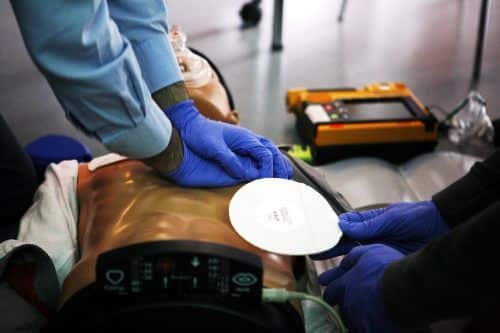A unique application for feedback, photography and research simulations for health sciences students was presented for the first time at the annual conference named after Moshe Prives, under the banner of medical simulation, at the Faculty of Health Sciences at Ben-Gurion University.

About 200 experts from the academy, rescue organizations, the army and the Center for Medical Simulation (MSAR) participated in the conference. The conference was organized by the Center for Education named after Prof. Moshe Prives.
In recent years, medical simulation has become an independent discipline and is a significant part of the teaching of the various health professions. The combination of advanced technology, extensive experience gained in the field and shrinking clinical fields have made medical simulation a "hot" topic in the world of medicine.
As part of the conference, a long series of studies, innovations, advanced teaching methods, projects and ventures were presented by the best experts in the field of simulation and aroused great interest among the participants.
A teaching method that caught the attention of the participants was the new application for training and feedback of students in teaching with the help of medical simulation. The presented application allows filming practice or an event anywhere, with available means such as mobile phones and tablets and providing real-time feedback to the practicing students and the students watching the practice. At the end of the practice, all the videos and feedback from both the instructor and the students are available to the students. This innovative learning and teaching method replaced the traditional teaching method, in which students could practice actions on dolls and receive feedback only if it was done in a designated room equipped with cameras. Furthermore, students who did not participate in the practice often found it difficult to benefit from what was done during the practice.
The application was developed by teams from the Faculty of Health Sciences and the Faculty of Engineering at Ben-Gurion University, who came up with the idea as part of the Innovate2Educate hackathon held in November 2015 at the Geb-Yam Park for Advanced Technologies in Be'er Sheva, as part of the strategic plan led by the Faculty of Health Sciences. The use of the application, weave skin and tendons and starting from the school year XNUMX, will be used in teaching at the faculty.
The faculty, which sees medical simulation as an important pillar of innovative and future teaching, will begin in the near future the construction of the largest medical simulation center in Israel, which will be established on the campus named after the Marcus family at Ben-Gurion University and will cover an area of approximately 5000 square meters, which will be dedicated to both classrooms and innovative simulation rooms .
